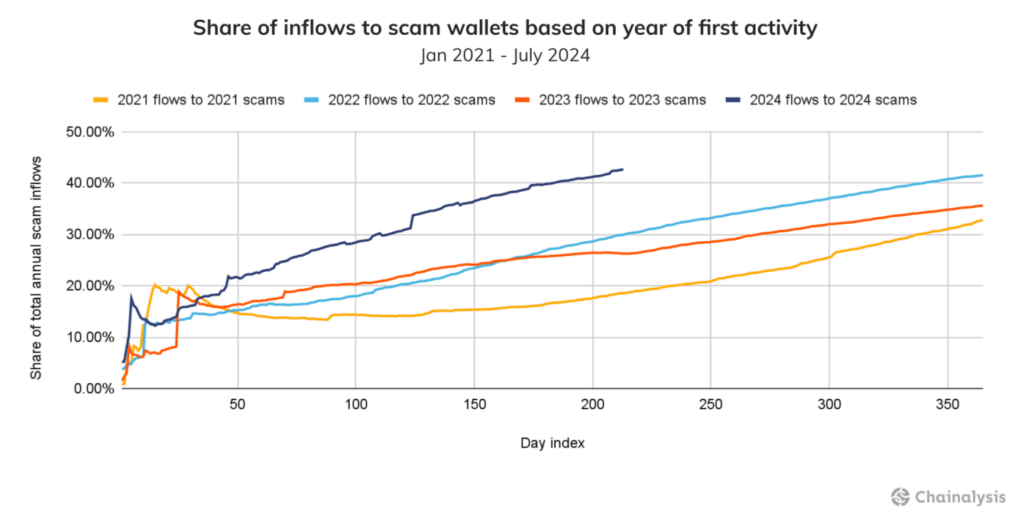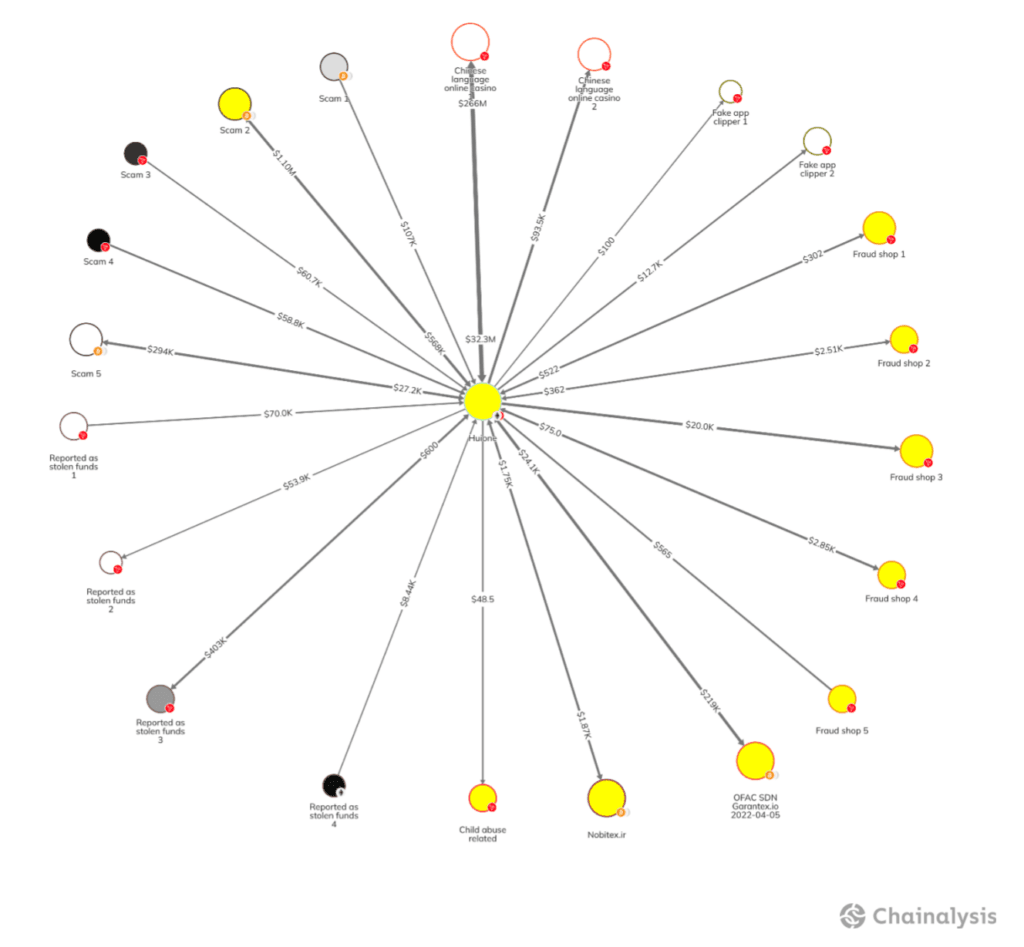Cybercriminals with crypto know-how have increasingly stopped doing drawn-out Ponzi schemes and switched to quick “pig butchering” scams as law enforcement has improved at shutting down the long-running operations.
The report forwarded by blockchain analytics firm Chainalysis illustrates the change in tactics. Although illicit on-chain activity decreased by almost 20% year-to-date, still, the amount stolen funds inflows nearly doubled. Scammers have now turned their attention to shorter but more profitable schemes.

“Pig butchering” is a term that describes how scammers “fatten up” victims before taking away their money. This usually involves building fake romantic relationships via text or dating apps, and then pushing victims towards bogus investment schemes. In a dark twist, many scammers are actually trafficking victims themselves, who are forced to work in Southeast Asian compounds.
The report reveals one of the most active scam criminal organizations that illustrate the current move from complex Ponzis to simpler ones. Based in the infamous KK Park compound in Myanmar, this organization has already made more than $100 million in 2024 alone by employing a wallet that was first seen in 2022.

Rise in crypto payments for social media account services
Scammers are also developing their off-chain tactics. According to Chainalysis, there has been an increase in crypto payments to sites that offer social media accounts, amounting to $10.5 million since 2022. This could be translated to around 525,000 to 2.1 million profiles bought to target victims..
Adding another layer of complexity is Huione Guarantee, a new cyberspace marketplace with a net worth of $49 billion. It is just exposed for facilitating cybercrimes. Although the platform engaged in some transactions of good faith, it has processed billions in crypto transactions linked to pig butchering, investment fraud, and money laundering since 2021.

Moreover, Huione acts as a peer-to-peer marketplace where buyers connects with sellers via Telegram. The company takes a percentage of each transaction while not verifying its legality. On-chain analysis shows over $1.9 billion in Ethereum deposits and $47 billion on TRON coming from illicit actors, including entities that are under sanctions.








